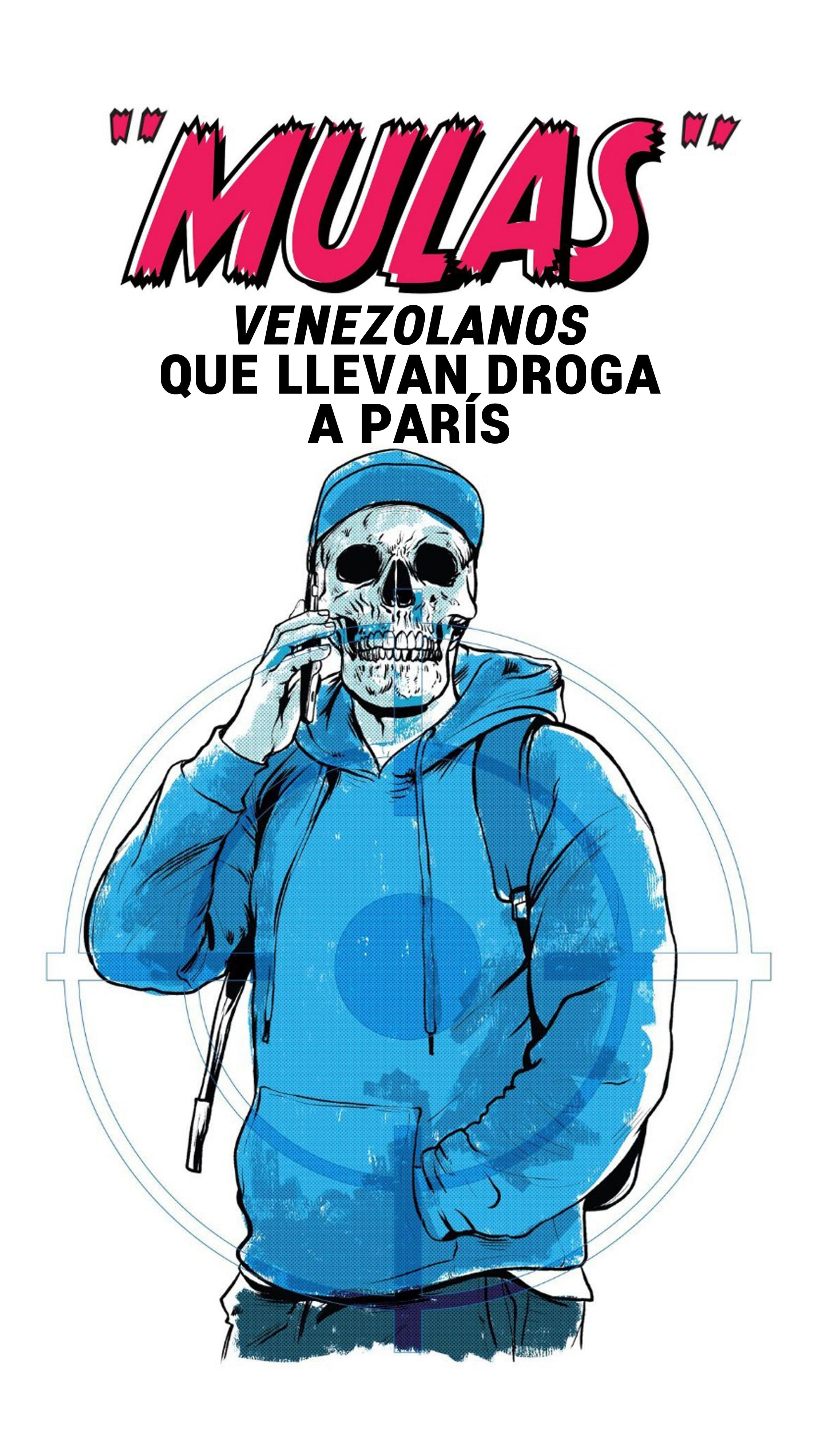VENEZUELANS
WHO TAKE DRUGS TO PARIS
“Food, for food I am here." The phrase is from Marvin*, the lead of the following comic, a Venezuelan who in the midst of the COVID-19 pandemic wandered the streets of Paris alone, without money, without a place to sleep and without a job. It was August 2020 and he had just been released from a prison in the French capital, where he ended up earlier that year after being captured with more than a hundred finger cots of cocaine.
After failing to emigrate to Peru, Marvin returned to Venezuela in 2019. He worked various jobs. But since “everything gets worse in Venezuela”, one fine day, in January 2020, he had nothing to feed her three children. So, he decided to take a risk. He accepted the proposal made by a childhood friend, and met in western Caracas with Susana*, a Venezuelan lawyer who told him bluntly: "The job consists of taking cocaine to Amsterdam for a Nigerian organization."
Susana is in charge of recruiting people to use as cocaine "mules". She is the one who communicates directly with the heads of the African network that has branches in Venezuela, Brazil, French Guiana, Suriname, and Europe.
In his long adventure, Marvin met 40 other Venezuelans at different points along the way, all captured by the same Nigerian network to carry a similar package. Like him, many fell along the way: they were detained by the authorities or died when a finger cot exploded in their stomach.
Although there is no recent data on the situation of drug traffickers in Brazil, since 2019 the press has recorded several cases of Venezuelans captured or killed by finger cots in that South American country or coming from there.
The use of Venezuelans in this form of drug trafficking has become widespread in recent years in almost the entire region. For example, in Colombia there are recent records that give an idea of the magnitude of the problem. In this Andean country, a 40% increase in the use of Venezuelan migrants as human drug couriers was reported in 2020, according to data from the National Police Anti-Narcotics Directorate (DIRAN in Spanish), cited by Pacifista.
Between 2013 and 2016, Colombian authorities detained 59 Venezuelans when they were used as drug trafficking "mules," according to the report Current Voices on the phenomenon of illicit drug couriers in Colombia. Now the figure is three times higher.
* The names of the individuals of this story have been changed at the major participants’ request, who agreed to give their testimony for the purposes of ARI’s investigation as long as their relatives and themselves remained safe.




